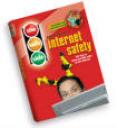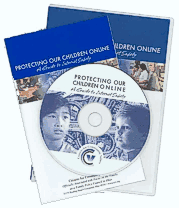I want to thank all the BYU Campus Education Week attendees who dropped into one or more of my classes this week on Internet Safety. I’ve had a great week and have really enjoyed the interactions with you.
Here’s a summary of the eight classes:
- What are your kids doing on the Internet? — A look at various technologies such as instant messaging, peer-to-peer applications, etc.
- Who’s watching your kids on the Internet? — Understanding the tactics of predators and knowing what you can do to protect your children.
- What are your kids finding on the Internet? — Identifying threats and establishing safety guidelines
- Why would someone want my identity? — Learning to safeguard your information.
- Malicious email — Avoiding spam, phishing attacks, etc.
- Malicious software — Avoiding viruses, worms, spyware, etc.
- Online gaming — Being aware of the dangers and establishing safety guidelines.
- Handheld devices — Understanding the dangers on the new frontier.
As promised, I’ve made PDF files of all the slides I presented. If you click on the following link (www.charlesknutson.net/edweek), you should see all the slides. Depending on the interface of your browser, you should be able to either open them there or download them. The PDF file format requires the Adobe Acrobat Reader, which is a very standard (and free) program. If you don’t have it, you can download it and install it for free here.
If you have any additional questions or comments, please email me. I’d love to hear from you. Remember that I’m heading into the start of Fall semester in one week, so you may experience a several week lag in response time from me as I try to dig out of the inevitable crunch that happens at the beginning of the school year.
If you have ward or stake leaders who would like more information about the materials from the classes, or who might have questions about any of the things we talked about, please pass my email address to them (knutson@cs.byu.edu), and I’ll do my best to respond as quickly as I can. This issue of Internet safety has significant moral implications for our lives (and the lives of our children), and I wish you the best as you grapple with these challenges. Please let me know if you have ideas or suggestions that might help me broaden the reach of this material.
If you have specific comments that might be of value to other attendees (or other visitors to this blog), feel free to leave a comment below.





